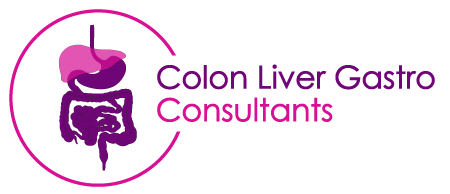Did you know your body is a bit like a superhero when it comes to inflammation? Just like superheroes have different versions (hello, Spider-Man!), inflammation also has two distinct types!
The first, known as acute inflammation, is like your body’s immediate response team. Imagine a flash of pink or red lighting up the scene of a wound, with the aim of fixing things up.
Fun fact: this type of inflammation is your body’s friendly way of saying, “Hey, I’ve got this!” whenever there’s an injury, illness, or nasty intruder around.
But then there’s the sequel – chronic inflammation. Not as friendly and definitely overstays its welcome. It’s like that TV series that should’ve ended after the first season but went on for five. This long-staying inflammation could be the result of various plot twists, ranging from hidden diseases to consistent environmental villains like the cunning air pollution, the devious psychological stress, and the ever-tricky poor nutrition. The plot thickens, as this chronic inflammation may set the stage for many other diseases to play their parts.
So, just like in the superhero world, while one version protects the city (your body), the other could lead to its downfall. Stay informed and take action accordingly!
By incorporating these fruits into your dietary regimen, you’re fortifying your body with essential nutrients that counteract inflammation the sweet and easy way.
Essential Anti-Inflammatory Fruits for Your Pantry
Dragon Fruit: Distinguished by its striking appearance, dragon fruit offers a rich blend of fiber and antioxidants, including vitamins C, E, B2, and carotenoids.
Apples: Ubiquitous and often underestimated, apples are a powerhouse of antioxidants like vitamin C, quercetin, and flavonoids. Furthermore, they are a significant source of fiber, especially in their skin.
Berries: Berry consumption is positively correlated with disease risk reduction. Berries are laden with fiber and antioxidants, including vitamin C, quercetin, carotenoids, and anthocyanin, the pigment responsible for their vivid hues.
Stone Fruits: Peaches, plums, and cherries are not only delicious but are also packed with antioxidants like vitamin C, vitamin A, anthocyanins, and phenolic acid. Additionally, they are a reliable source of fiber.
Red and Black Grapes: Known for the presence of the antioxidant resveratrol in their skin, grapes are great for reducing inflammation. Along with other antioxidants like vitamin C, vitamin B2, anthocyanin, quercetin, and flavonoids, these grapes are a must-add to your diet.
Citrus Fruits: Citrus fruits, encompassing oranges, grapefruits, lemons, and limes, are antioxidant-rich, especially in flavonoids and vitamin C. Additionally, they are fiber-rich. However, use caution with grapefruits due to potential medication interactions especially with statins.
Pomegranate Seeds: Consuming these vibrant seeds provides a wealth of fiber and antioxidants like vitamin C, anthocyanin, tannins, and phenolic acid.
Passion Fruit: Rich in vitamin C, vitamin A, and polyphenols, passion fruit is an exceptional source of nutrients. Its seeds are particularly fiber-rich.
Pineapple: Pineapples contain bromelain, an anti-inflammatory compound. They’re also an excellent source of fiber and antioxidants such as vitamin C and vitamin A.
Watermelon: This refreshing fruit is renowned for its lycopene content, which imparts its bright red hue. Additionally, it’s a valuable source of the antioxidant vitamin C.
Mechanism of Action in Mitigating Chronic Inflammation
The remarkable anti-inflammatory properties of various fruits stem from their rich reservoir of nutrients and specific compounds that combat chronic inflammation. Fruits bestow these benefits through two pivotal agents: antioxidants and fiber.
Antioxidants: Antioxidants function to counteract certain unstable molecules, which may arise during inflammatory processes. These volatile molecules, termed free radicals, proliferate when the body persistently encounters environmental stressors, such as airborne toxins, alcohol intake, nutritional deficiencies, and psychological stress. If left unchecked, an abundance of these radicals can inflict prolonged cellular damage. Such cellular harm is likely to be a precursor to various chronic diseases. Thus, augmenting antioxidant intake, predominantly from plant sources, is crucial to offsetting these volatile free radical molecules.
Fiber: There is ample research to point out fiber is a potent ally against chronic inflammation. One proposed mechanism is that fiber assists in maintaining a gut pH balance that curtails the production of inflammation-promoting molecules.
Stay tuned for future blogs on gut inflammation.

